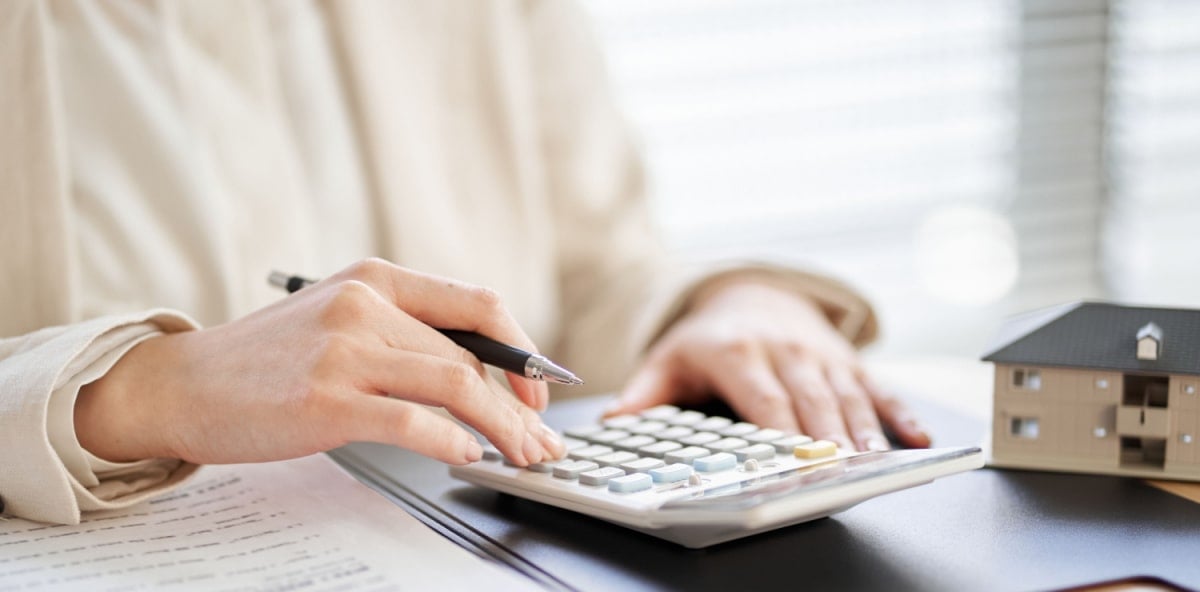What happens if you can't make your business loan payments?

Without a loan, many small businesses would never get off the ground. A 2022 survey from Shopify found that the average small business owner spends $40,000 in their first full year of operation, or $18,000 if their business has no employees, such as an independent contractor or sole proprietorship.
However, it’s common to face difficulties when it comes time to pay the loan back. Perhaps your business didn’t perform as well as expected, or an incident like the pandemic disrupted your plans.
Whether you took out a conventional business loan or a Small Business Administration (SBA) loan, learn your options for repayment and what can happen when you default on a loan.
What happens if you miss business loan payments?
There’s no shortage of reasons for missing a monthly payment. Your business could be forced to close temporarily, or simply not bring in enough cash flow during a slow period.
If you’re at risk of a late payment, the best thing you can do is to communicate with your lender. Explain the situation and let the lender know when you think you can catch up. Your lender might allow you to defer the loan for a month or two and make up the payments when you’re in a better financial situation.
For example, imagine your office building unexpectedly floods and $20,000 in equipment is destroyed. You might need to purchase new equipment, leaving you with less money to make your next loan payment.
In this case, a business interruption insurance policy would help you cover the loan payments while you’re getting back on your feet. However, you would still need to address the missed payment with your loan company.
Some lenders are willing to work with borrowers who miss a few loan payments. But after a stretch of consistently missing payments, your loan may be at risk of going into default.
A business loan default means you’ve failed to make your loan payments on time, based on the requirements of your loan agreement. However, there’s no universal standard for when a loan is considered “in default.”

What happens if you default on a business loan?
When you take out a business loan, you intend to use your profits to pay it back. But if your business fails, you might have no choice but to default on your commercial loan.
If your loan goes into default, your lender will attempt to collect the money you owe. For loans that have gone into collections, a collection agency will contact you about the overdue payments.
No matter what type of small business loan you have, defaulting can affect your personal credit score. And while your personal finances are typically separate from your business finances, your personal assets may not be protected in the event of a commercial loan default.
If your business is shutting down operations, you should notify your lender as soon as possible. Here’s how the default process works with various types of business loans.
Defaulting on a secured loan
When you default on a secured loan, the lender has the legal right to seize your collateral.
For example, if you used your business equipment as loan collateral, your lender could take ownership of your business equipment and sell it to get back the money you owe. If your collateral covers the debt, plus penalty fees, you may not have to pay anything out of pocket.
Defaulting on an unsecured loan
An unsecured loan has no collateral, but it often has a personal guarantee.
The purpose of a personal guarantee is to reduce the lender’s risk when you borrow money. It gives the lender the legal right to collect your personal assets, like real estate and savings in your bank account, to get back what you owe if you default. To get access to your assets, the lender may take legal action and sue you for loan default.
Defaulting on an SBA loan
SBA loans, such as 7(a) loans and COVID-19 EIDL loans, are backed by the U.S. government and issued by approved financial institutions. Under this program, the SBA agrees to reimburse the lender for a portion of your business debt if you default on the loan.
However, that doesn’t mean SBA loans are forgiven if you default. You’re still legally required to pay the federal government what you owe if the debt goes into collections, but the process is slightly different.
Because SBA loans are guaranteed, the government pays your lender a portion of what you owe (the “guaranteed” amount). Then, you work with the SBA to pay back the remaining amount you owe the government. Sometimes, you’re able to negotiate a smaller debt repayment.
Due to the effects of the pandemic, the SBA offers deferment and other options for EIDL loans approved in 2020, 2021, and 2022, though interest continues to accrue.
While you can't always avoid a loan default, it's always a smart idea to be transparent and honest with your lender.
How can you recover from business loan default?
Defaulting on a business loan is a big deal with serious consequences, even if the loan amount was small. However, there are a few things you can do to recover.
Talk to your lender
First, talk to your lender about your options. You might be able to refinance the loan and get a lower interest rate, or a longer loan term. If your lender can’t help, consider raising money from investors or selling some of your business assets to come up with the cash you need to pay it off.
Look into the SBA OIC program
If you have an SBA loan, you might be able to take advantage of the SBA Offer in Compromise (OIC) program. If your business shuts down and you liquidate all your business assets, the OIC program allows you to settle with your SBA lender for a lower debt payment.
Settle your debt
Another option is to settle your debt. This involves negotiating with your lender for a lower debt payment. You can either hire a debt settlement company that will negotiate on your behalf or settle the debt on your own by negotiating directly with your lender.
Not everyone is a good candidate for debt settlement, and it should only be used as a last resort. While settling your debt can reduce what you owe, it can also have a significant impact on your credit, which will affect you in a variety of ways.
File for business bankruptcy
The true last resort is bankruptcy. If you default on a commercial loan, it’s possible that declaring business bankruptcy could absolve your unpaid debt.
Bankruptcy doesn’t automatically wipe out all your debt, so it’s a good idea to speak with a bankruptcy lawyer to figure out if this is an option for you.
Avoid default before it happens
When you first take out a loan, make sure you can afford the full amount of your monthly payments, and have a business plan for when times get tough.
While you can’t always avoid a loan default, it’s always a smart idea to be transparent and honest with your lender. That can help you avoid default, even if your financial situation changes.
Keep your lender in the loop if you think you’re going to miss a payment. They might be able to temporarily pause your payments, defer your payments, or adjust your loan terms to make the payments more manageable. The worst thing you can do is ignore your lender’s communication and payment reminders.

Find small business insurance from trusted carriers with Insureon
Complete Insureon’s easy online application today to compare insurance quotes from top-rated U.S. carriers. Once you find the right policy for your small business, you can begin coverage in less than 24 hours.

Meredith Wood, Contributing Writer
Meredith is a writer and content editor, with an expertise in small business lending. She's experienced small business financial guidance, and is frequently sought after for her industry know-how. Her advice has been featured on AllBusiness, the SBA, SCORE, Small Business Trends, and more.







